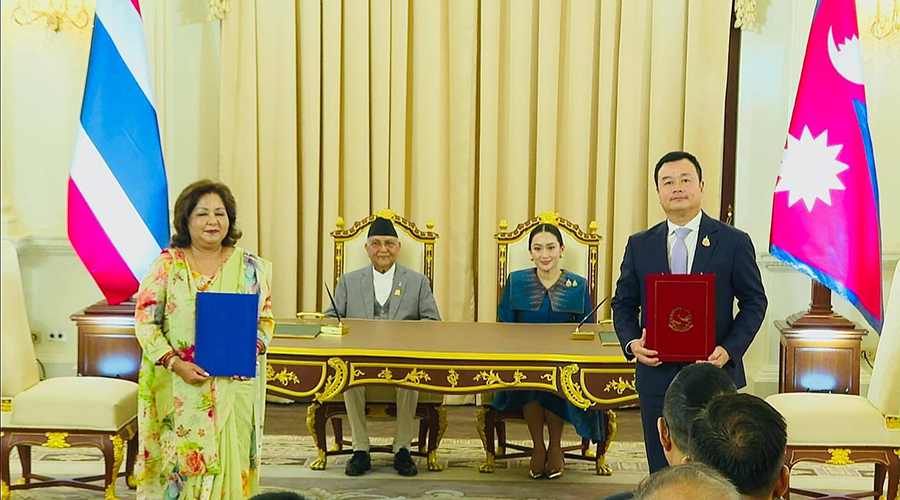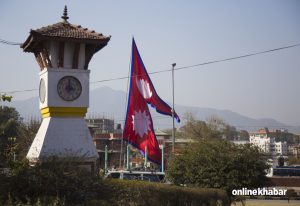
When I returned to my home in Kathmandu after two years, I noticed so many women in my neighbourhood involved in cooperatives. The mushrooming of ‘women cooperatives’ made me perplexed.
I am certainly aware of the cultural tradition of informal organisations such as Dhukuti and Guthi in Nepal, which provide kinds of credit and saving platforms and act as a forum to smoothly run different sociocultural practices. But, now there are so many cooperatives formed, purposely to ’empower marginalised women’. Not all women are marginalised, of course. The question is then – do they really empower the marginalised women?
The historical context
The narrative of cooperatives as a vehicle for development and empowerment of people started in Nepal when the government viewed itself as ‘development agent’ after the political change in 1950. This led to the formation of Department of Cooperatives in 1953, and the first formal cooperative through Rapti Valley Development Project – a US supported project – in 1957. The emphasis on cooperatives further increased after a political change in 1990 that led to the enactment of Cooperative Act 1992 and Cooperative Rule 1993.
Now, there are 34,713 formally registered cooperatives in Nepal, but the number is increasing every year (Department of Cooperatives, 2017). Over the years, the government has accepted the importance of cooperatives in the development of the country. Today, the new Constitution of Nepal has enshrined the cooperative sector as one of the three pillars for national development (two other being public and private sectors) with diverse types of cooperative societies operating in Nepal.

The empowerment agenda and reality
A major shift in cooperative movement is seen in the rise of women-only cooperatives with the agenda of women empowerment. They assume, with the possibility to save money and to access credit for enterprises, women will be economically independent with improvements in their livelihoods, which will then significantly enhance their social status and decision-making power within their family and society.
These cooperatives must have helped women; and therefore so many cooperatives have germinated. Looking at my own neighbourhood with many cooperatives, I felt that this may not be the case, as the condition of those marginalised women has not changed much. I suspect that if they had helped, the condition of these marginalised women should have been different by now. This persistent curiosity led me to question how these women-only cooperatives are established, who operates them, and above all, if women of different social and economic backgrounds get the benefits that they are supposed to.
In my informal meetings with the women (both elite and marginalised) involved in such cooperatives, I came to know that they are more used for the political advantage by women from higher class, who also have nexus with political parties. These cooperatives leaders, who have a double role in the party and the cooperatives, take these women to political rallies and then mobilise them during elections. Slowly, the women who are supposed to be helped are given some membership to various structures of the parties, mainly the women’s wings.
When these women become members of the political parties, they are encouraged to make more members and get more donations for the parties through the membership levy. Then, I started to realise how political parties work at the grassroots. This was a striking reality for me. I find these cooperatives as the tentacles of the political parties.
I know that it is not wrong to be a member of a party. But, the question is if the women cooperatives are divided or organised based on political affiliations, do they really help the cause for which they have been established? In my neighbourhood, I see that these politically oriented cooperatives did not come together to help women in need and distress. These cooperatives first want to know the political affiliation of the victims and their families. In few other cases, women controlling the cooperatives are the wives of high achieving professionals with ambitions to jump into political positions. They are found to take the advantage of their wives taking a double role of cooperative leaders and party members.

Irony of independence
Saving and credit function of these cooperatives has been hailed as a main pathway to help women economically, which often lack collateral to receive credit from formal banks. I met two women who told me that they received Rs10,000 each to run a retail shop. But the cooperatives always pushed them to pay the loan as soon as possible. In the end, they had to take the loan from informal sources at higher interest rates to pay the loan of the cooperative. In getting this loan, they used their husband’s help. Mostly, women have paid the loan through the remittances they get from their husbands working in foreign countries. These women have no idea about the profitability of the enterprises they have undertaken. They do so just to follow the trend and to appear worthy in the society. For them, the empowerment is just a farce.
The leading members of these cooperative who control their management often have followed an ambition of operating them as a bank, in the process, losing their sight to women empowering agenda. To make profit, they even give credit to unproductive sectors like real estate. Then, these cooperatives become less concerned with the need of poorer and marginalised women.
If the cooperatives really want to meet their objectives, there should be a radical change in the way they are formed and managed. The government now needs to bring a suitable policy to correct the aberrations in the cooperative movement. Above all, the nature and purpose of these cooperatives need to be reframed in such that if the purpose is to empower the marginalised women, the women cooperatives must be conceptualised and operated as a social institution, rather than an extension of business or political parties.
The author is a research assistant at University of New South Wales (UNSW), Australia.
























